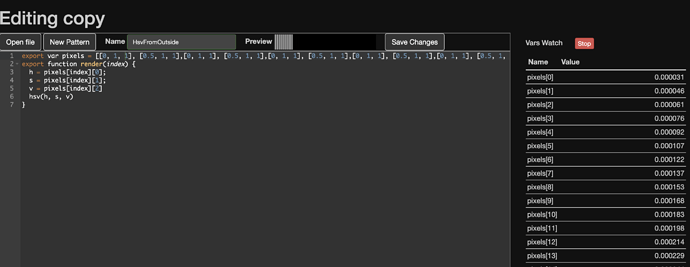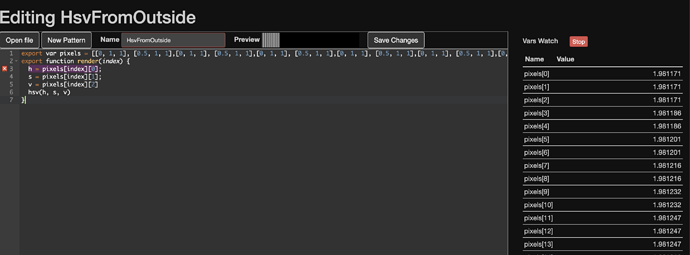I’m attempting to stream in pre-computed pixel values to a fleet of Pixelblazes via the WebSocket API. I’ve successfully sent pixel data out my client:
{"setVars":{"pixels":[[0.8624999999993681,1,1],[0.8624999999993681,1,1],[0.8624999999993681,1,1],[0.8624999999993681,1,1],[0.8624999999993681,1,1],[0.8624999999993681,1,1],[0.8624999999993681,1,1],[0.8624999999993681,1,1],[0.8624999999993681,1,1],[0.8624999999993681,1,1],[0.8624999999993681,1,1],[0.8624999999993681,1,1],[0.8624999999993681,1,1],[0.8624999999993681,1,1],[0.8624999999993681,1,1],[0.8624999999993681,1,1],[0.8624999999993681,1,1],[0.8624999999993681,1,1]]}}
I’m getting array out of bounds errors on line 3. I started the variable watcher and it looks like it thinks that pixels is an array of number, not an array of arrays. Are arrays of arrays not supported?
Before streaming data:
After streaming data:

